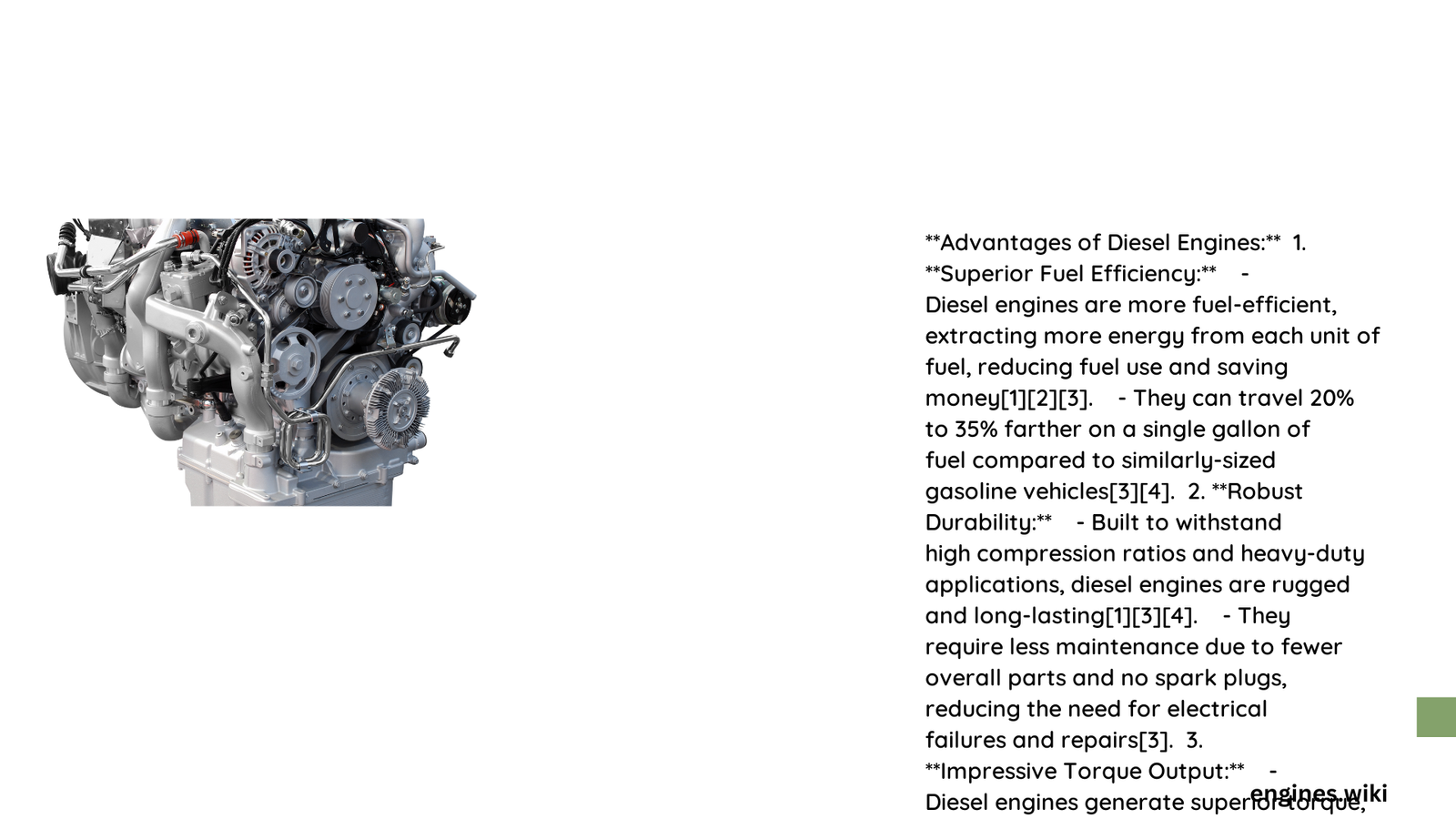Diesel engines represent a pinnacle of automotive engineering, offering remarkable advantages that set them apart from traditional gasoline powerplants. These robust engines deliver exceptional performance across multiple domains, providing vehicle owners with superior fuel economy, extended durability, impressive torque output, and cost-effective operational characteristics that make them an outstanding choice for diverse transportation and industrial applications.
What Makes Diesel Engines Uniquely Powerful?
Diesel engines have evolved significantly, transforming from industrial workhorses to sophisticated power units that compete effectively across multiple performance metrics. Their engineering excellence provides substantial benefits for various sectors, from personal transportation to heavy-duty industrial machinery.
How Do Diesel Engines Achieve Superior Fuel Efficiency?
Diesel engines excel in fuel efficiency through several innovative mechanisms:
| Efficiency Factor | Performance Metric | Comparative Advantage |
|---|---|---|
| Energy Density | 10-15% Higher Energy Content | More Miles per Gallon |
| Compression Ratio | 14:1 to 25:1 | Enhanced Thermal Efficiency |
| Fuel Conversion | Up to 40% Efficient | Reduced Energy Waste |
Key efficiency advantages include:
– 20-35% improved fuel economy compared to gasoline engines
– Lower fuel consumption during long-distance travel
– Reduced carbon emissions per mile traveled
Why Are Diesel Engines More Durable?
Diesel engines are engineered for exceptional longevity:
- Robust Construction
- Thicker engine block materials
- Reinforced internal components
-
Designed to withstand higher compression pressures
-
Operational Characteristics
- Lower RPM operations
- Less mechanical stress
- Longer component lifespan
Durability Statistics:
– Average Lifespan: 500,000 to 1,000,000 miles
– Maintenance Intervals: Extended compared to gasoline engines
– Component Reliability: Significantly higher wear resistance
What Torque Advantages Do Diesel Engines Provide?
Diesel powerplants generate remarkable torque characteristics:
- Higher Torque Output: 700-1000 Nm at lower RPMs
- Superior Towing Capabilities
- Enhanced Performance in Heavy-Duty Applications
- Consistent Power Delivery Across Speed Ranges
How Do Diesel Engines Reduce Maintenance Costs?
Maintenance advantages include:
– Less frequent service requirements
– Longer-lasting components
– Reduced overall operational expenses
Maintenance Cost Comparison:
– Diesel Oil Change: $50-$70
– Gasoline Oil Change: $20-$40
– Service Interval: 10,000-15,000 miles
What Industries Benefit Most from Diesel Technology?
- Transportation
- Agriculture
- Construction
- Marine Operations
- Power Generation
Conclusion

Diesel engines represent a sophisticated technological solution offering unparalleled performance across multiple domains. Their combination of efficiency, durability, and power makes them an exceptional choice for discerning professionals and industries requiring reliable, high-performance power systems.
Technical Considerations
While diesel engines offer numerous advantages, potential users should consider:
– Initial purchase cost
– Local fuel pricing
– Specific application requirements
– Environmental regulations
Reference:
– Fuel Economy Information
– Diesel Engine Technology Insights
– Automotive Engineering Resources
